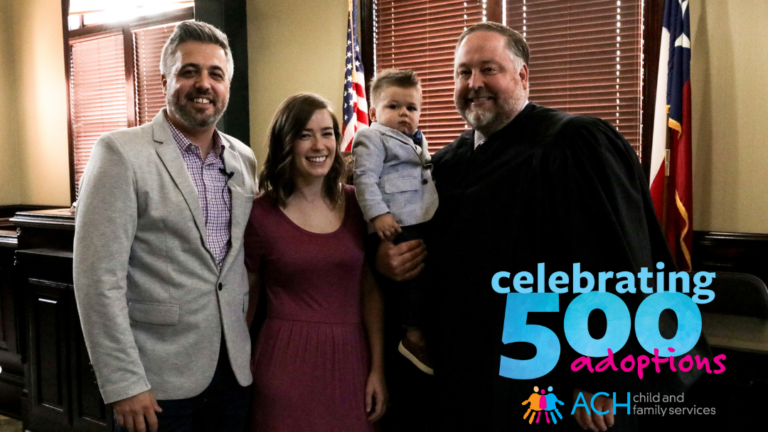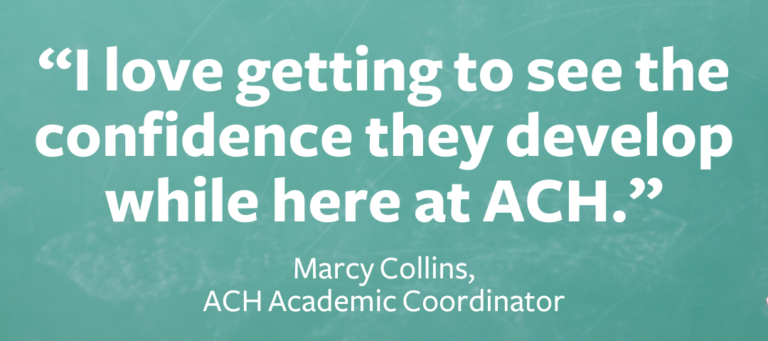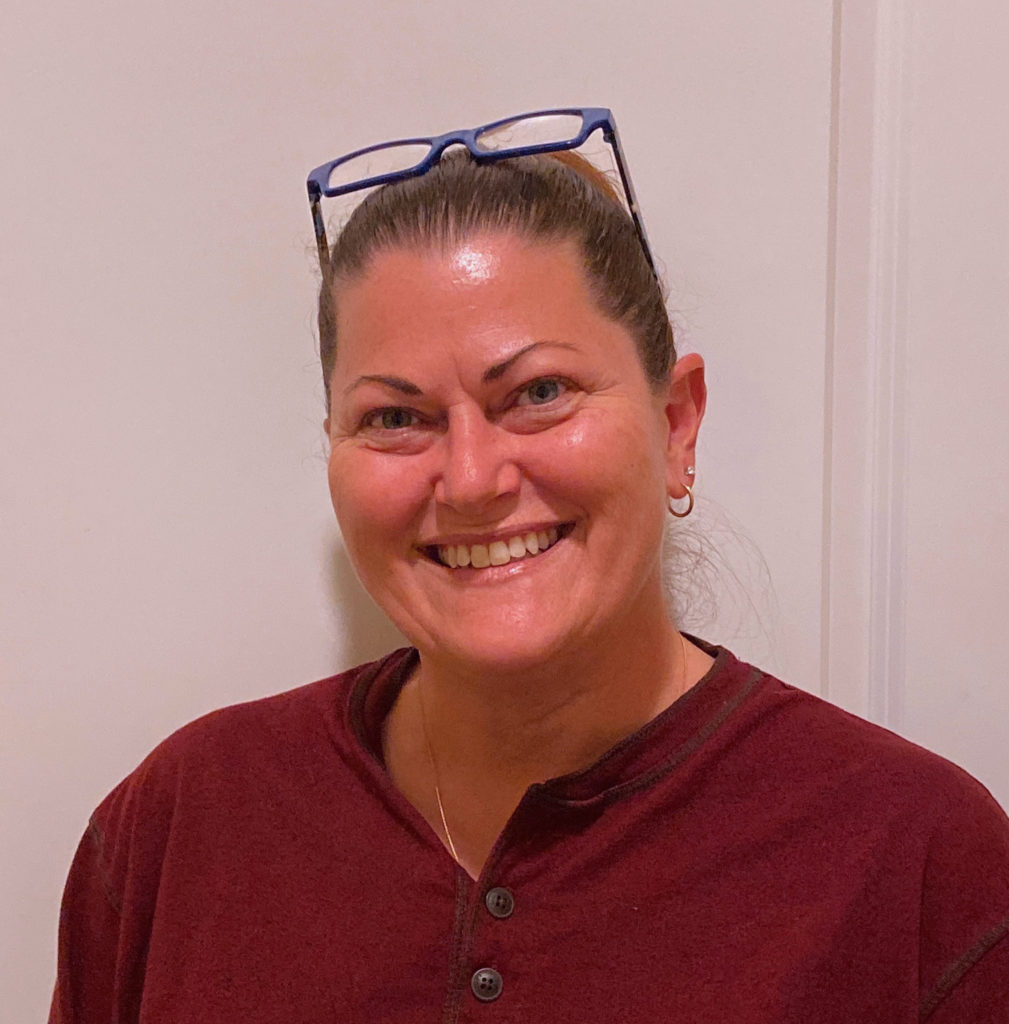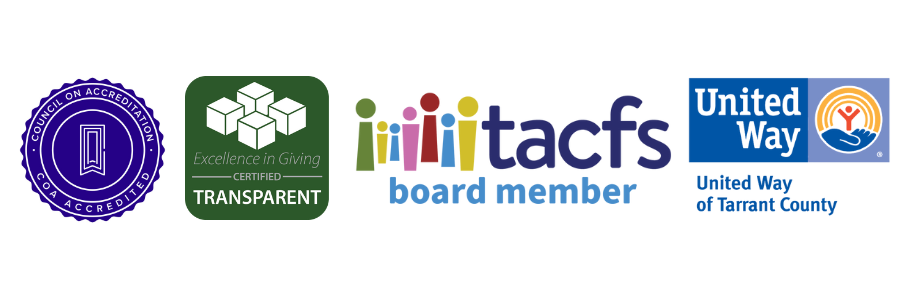ACH’s New Program is a Unique Solution Providing Much Needed Resources to Kinship Families
Chantel Bedlington plays a vital role in helping ACH Child and Family Services create a program that will change the lives of families caring for relative children.
Chantel, ACH’s Kinship Navigator Support Specialist, has been reviewing data from a voluntary survey and connecting with kinship families as well as organizations that serve kinship families to build a network of resources, education, and support to build our Kinship Navigator program.
“The Kinship Navigator program will help kinship families with their unique needs and connect them to much-needed resources, support groups, as well as financial assistance, legal assistance, and more,” said Chantel.
ACH is one of four organizations selected by the Texas Department of Family and Protective Services to develop and implement a program to serve kinship caregivers.
Because of ACH’s broad range of programs that help children and families, Chantel has been able to assist many kinship families before the program has even launched. Kinship families have been able to utilize AIRS, ACH’s 24/7 bilingual crisis hotline, Real Help for Real Life, which provides free youth and family counseling, and our Kinship Connections support group. The Kinship Navigator Program has also partnered with Texas Grandparents Raising Grandchildren support groups in North Texas.
What is kinship care?
Close to home
Chantel understands the needs and struggles of kinship parents because she is one herself. Chantel and her husband began raising relative children they had only met once before the placement. She also has two biological children and one adoptive child.
Two years ago, Chantel got a call from Child Protective Services in Kansas saying that her husband’s stepsister’s children would be placed in foster care if a family member couldn’t care for them.
“What do you do when you get that call,” asked Chantel. “I don’t want to be that person that stands in front of these kids one day and have them ask, ‘You are my family, and you didn’t come?’”
So, they went. Chantel and her husband packed up their car and drove to Kansas to pick up the children. Almost as soon as the kids were in Chantel’s care, she was faced with a lack of support and resources to help her kids since their DFPS case was closed as soon as they were picked up by family.
For the last two years since the placement, Chantel had to fight to get the kids on Medicaid and get adequate resources for their critical health needs. She had to obtain a lawyer to get legal guardianship. Even getting the kids enrolled at their neighborhood schools was a struggle.
“I had to fight for everything,” Chantel said.
This experience led her to ACH.
“When I saw this position at ACH, I wasn’t necessarily looking for a new job,” she said. “I was just like, ‘Wow, somebody has got to do that. Somebody has got to help fight for these families.’”
Chantel has built strong relationships with local kinship families from the very beginning of the Kinship Navigator program. These relationships were extremely rewarding and beneficial in her role as a kinship parent.
“Before I started working with ACH, I didn’t know any other kinship caregivers,” said Chantel. “It has been wonderful to connect with them and know that we are on this journey together.”
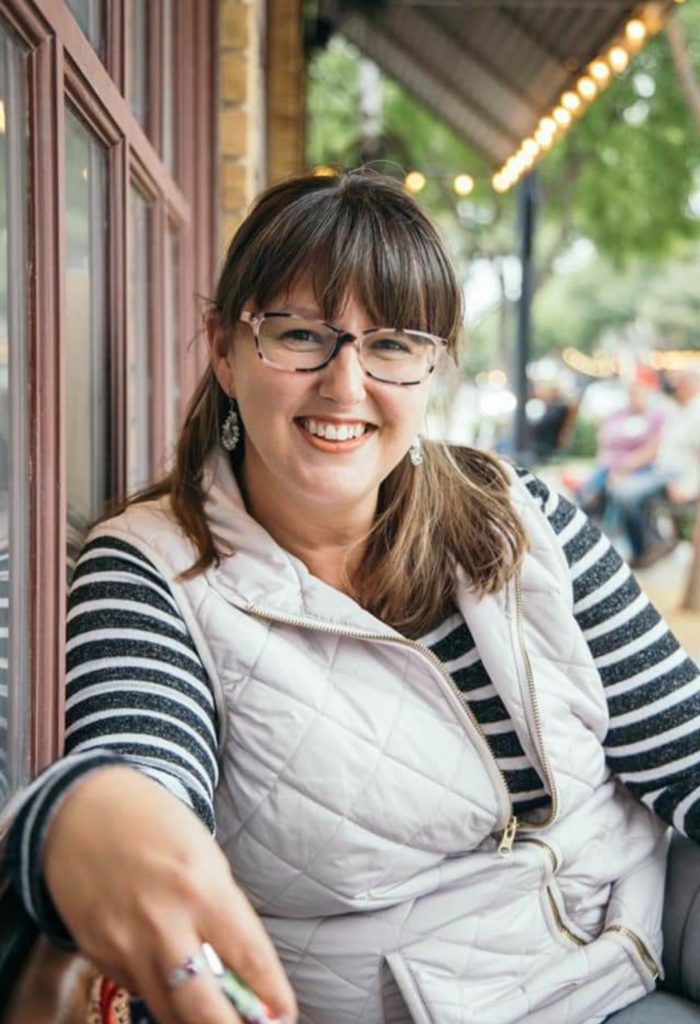
ACH Kinship Services Dig Deeper
That connection is almost as equally important as financial assistance and legal aid for kinship parents.
Many kinship caregivers, especially those who are grandparents, are again having to raise children during a time when none of their friends are. They don’t have anyone to relate to in their lives.
Not only that, but many are dealing with the guilt of their children’s choices that led to their grandchildren entering their care. It is hard for them not to feel shame for their children’s choices that led to things like addiction or imprisonment, which caused them to lose their children.
“Many of our grandparents feel isolated because of that,” said Chantel. “They need to know their adult children’s choices are not their fault.”
Most people don’t realize kinship families have unique needs: They are raising the children of a family member and experiencing the many emotions involved in that. The family dynamic can be a very difficult one to navigate for the kids and the caregiver. For many of the children going into kinship care, they are dealing with the trauma they experienced with their parents. Oftentimes, even though the children are going with family, they don’t have existing relationships with the family they are being sent to live with, which can be traumatizing.
“Foster and adoptive parents have the advantage of being trained on trauma, what to expect and how to help a kid who is losing control,” said Chantel. “For kinship families, they just get a call.”
What to Expect When You’re Not Expecting
To combat this common problem, Chantel has begun developing a guide to help kinship parents navigate their new role: What to Expect When You Weren’t Expecting. It will teach parents how to get the children enrolled in school, what to expect in the licensing process, and how to apply for Medicaid. Becoming a licensed kinship foster parent offers benefits like monthly financial compensation and long-term support. However, the Kinship Navigator Program is ready to help those who are not eligible or interested in seeking licensing. The guide will also have recommendations for articles, podcasts, and books on kinship and trauma-informed care.
The Kinship Navigator program is planned to start this Fall, and it will benefit kinship families in Tarrant, Parker, Palo Pinto, Johnson, and Hill counties.
If you are a caregiver, legal professional, child welfare worker, educator, or in law enforcement and would like to participate in assisting us in our planning process or get more information, please register by clicking here.



